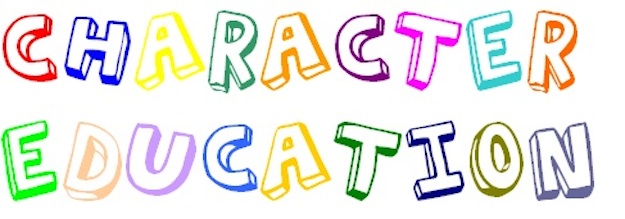
Promoting Character Education: Building Ethical Values in Students
In the realm of education, there exists a crucial but often overlooked facet: character education. While academic prowess and technical skills are undoubtedly essential, fostering ethical values and character traits in students is equally vital for their holistic development. Character education aims to instill virtues such as integrity, respect, responsibility, empathy, and fairness, laying the foundation for individuals to become conscientious and ethical members of society.

The Importance of Character Education
Character education goes beyond academic achievement; it molds students into well-rounded individuals capable of navigating life’s complexities with integrity and empathy. Here’s why it’s so crucial:
- Long-term Success: While academic qualifications may open doors, it’s one’s character that determines how far they’ll go and how positively they’ll impact the world around them.
- Social Cohesion: A society thrives when its members exhibit virtues like respect, empathy, and cooperation. Character education fosters these qualities, contributing to a harmonious community.
- Ethical Decision-Making: In a world fraught with moral dilemmas, individuals with strong character are more likely to make principled decisions, even in challenging situations.
- Personal Fulfillment: Beyond material success, individuals with sound character often experience greater personal satisfaction, as they live in alignment with their values and contribute meaningfully to society.
Strategies for Promoting Character Education
Educators play a pivotal role in nurturing students’ character. Here are some effective strategies for integrating character education into the curriculum:
- Lead by Example: Teachers serve as role models, embodying the virtues they seek to instill in their students. Demonstrating honesty, kindness, and respect creates a culture where such traits are valued and emulated.
- Explicit Instruction: Allocate time within the curriculum for explicit discussions on values and ethics. Utilize real-life scenarios to prompt critical thinking and ethical reasoning.
- Incorporate Literature and Media: Books, films, and other forms of media offer rich opportunities for exploring moral dilemmas and character development. Engage students in analyzing characters’ actions and motivations, fostering empathy and moral insight.
- Service Learning: Engage students in community service projects that allow them to apply classroom learning to real-world issues. Serving others cultivates compassion, responsibility, and a sense of civic duty.
- Conflict Resolution Training: Teach students constructive ways to manage conflicts and disagreements, emphasizing communication, empathy, and compromise.
- Peer Mentoring Programs: Establish mentorship programs where older students mentor younger ones, fostering a sense of responsibility, leadership, and empathy among both mentors and mentees.
- Reflection and Journaling: Encourage students to reflect on their values, actions, and experiences through journaling and group discussions. This self-reflection cultivates self-awareness and a deeper understanding of ethical principles.
Overcoming Challenges
Implementing character education may face obstacles, such as conflicting priorities, time constraints, and differing values among stakeholders. However, these challenges can be addressed through:
- Collaboration: Engage teachers, administrators, parents, and community members in dialogue to establish shared goals and strategies for character education.
- Integration: Integrate character education seamlessly into existing curricula, rather than treating it as a separate entity, to optimize time and resources.
- Professional Development: Provide educators with training and resources to effectively incorporate character education into their teaching practices.
- Continuous Evaluation: Regularly assess the impact of character education initiatives through feedback mechanisms and data analysis, adapting approaches as needed.
At MakeMyAssignments, we recognize the importance of holistic student development, which goes beyond academic excellence to encompass character education. Our platform is committed to supporting students in their journey towards becoming ethical, responsible, and compassionate individuals. Here’s how MakeMyAssignments can assist students in fostering the values and virtues outlined in character education:
1. Customized Learning Materials
MakeMyAssignments provides personalized learning materials that not only cater to students’ academic needs but also integrate character education principles. Our expert tutors incorporate ethical dilemmas, moral reflections, and values-based discussions into assignments, fostering critical thinking and moral reasoning skills.
2. Ethical Writing Standards
We uphold the highest ethical standards in academic writing, emphasizing originality, integrity, and honesty. By adhering to ethical writing practices, students learn the importance of academic integrity and ethical conduct, preparing them for ethical decision-making in their academic and professional endeavors.
3. Mentorship and Guidance
Our platform offers mentorship and guidance from experienced tutors who serve as role models for students. Through one-on-one interactions, tutors not only assist students in academic tasks but also impart valuable life lessons, emphasizing virtues such as perseverance, empathy, and accountability.
4. Emphasis on Collaboration and Communication
MakeMyAssignments encourages collaborative learning environments where students engage in constructive dialogue, exchange ideas, and learn from one another. By fostering communication skills, empathy, and teamwork, we equip students with essential interpersonal skills essential for personal and professional success.
5. Integration of Character Education into Assignments
We integrate character education principles into assignments across various subjects and disciplines. Whether it’s analyzing ethical dilemmas in literature, exploring moral implications in science and technology, or discussing social justice issues in humanities, our assignments prompt students to reflect on their values and engage in ethical decision-making.
6. Community Engagement and Service Learning
MakeMyAssignments facilitates community engagement and service learning opportunities, allowing students to apply classroom learning to real-world issues. Through service projects and community initiatives, students develop empathy, civic responsibility, and a sense of social justice, contributing positively to their communities.
7. Continuous Feedback and Reflection
We provide students with constructive feedback and opportunities for self-reflection, encouraging them to assess their academic performance, ethical conduct, and personal growth. By fostering self-awareness and accountability, we empower students to cultivate their character and strive for continuous improvement.
At MakeMyAssignments, we are committed to empowering students not only academically but also ethically and morally. Through personalized learning experiences, mentorship, and a focus on character education principles, we support students in developing into conscientious, responsible, and compassionate individuals. By integrating character education into our services, we aim to equip students with the skills, values, and virtues necessary to navigate life’s challenges with integrity and purpose. With MakeMyAssignments, students can embark on a journey of academic excellence and personal growth, laying the foundation for a brighter future for themselves and society.





